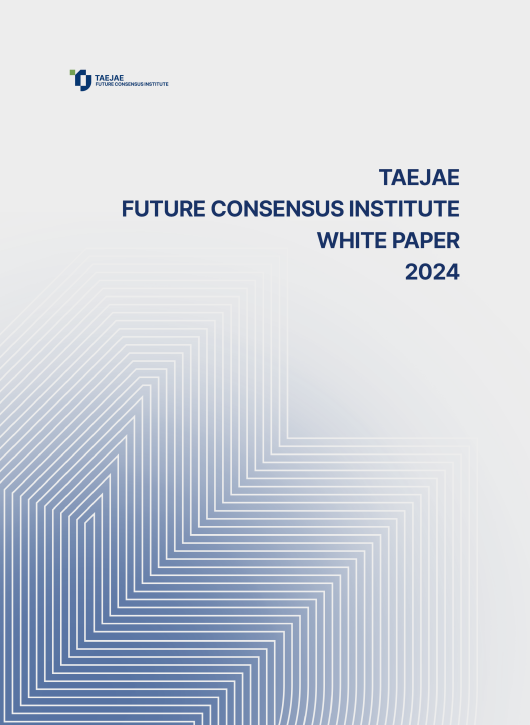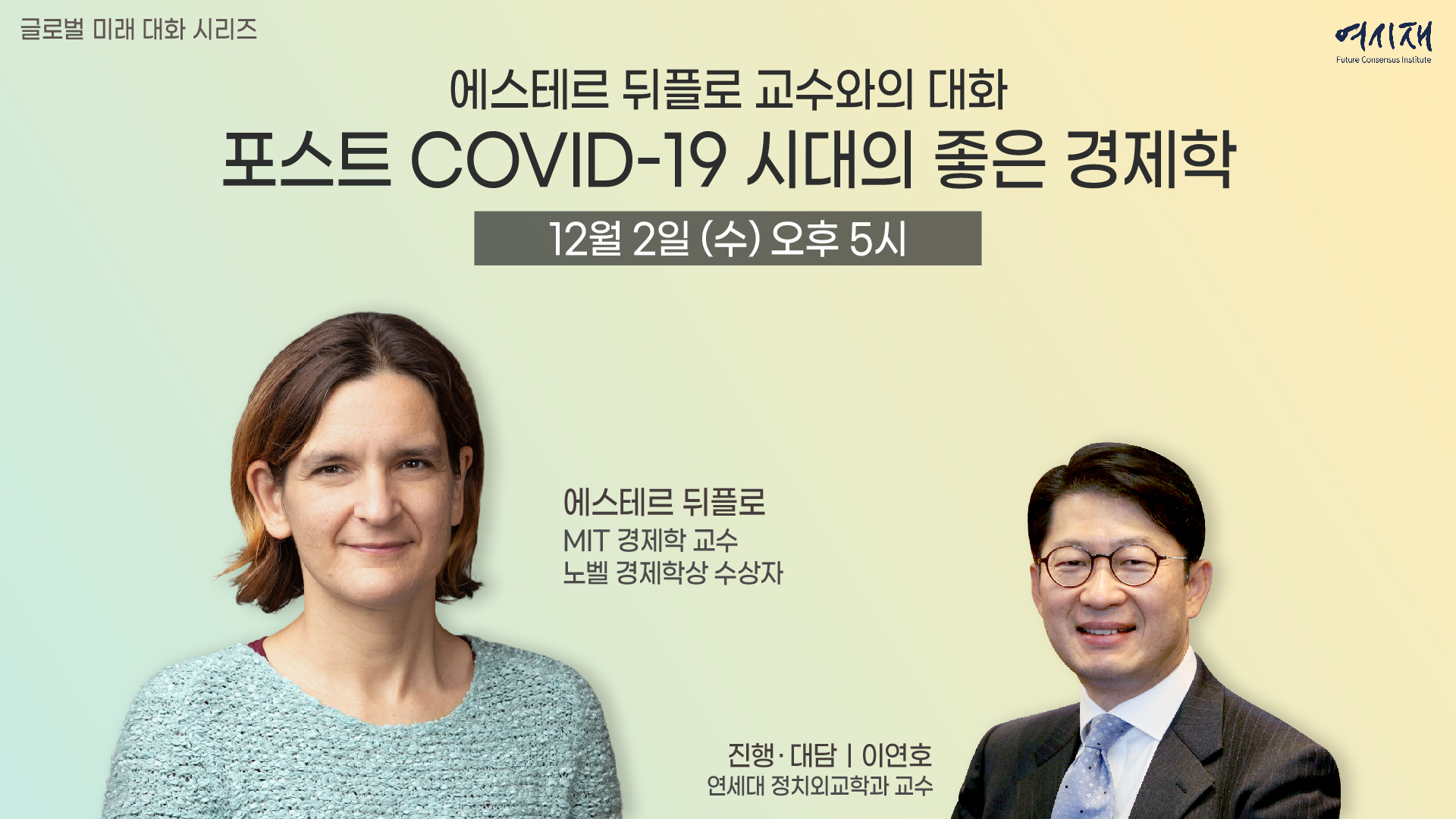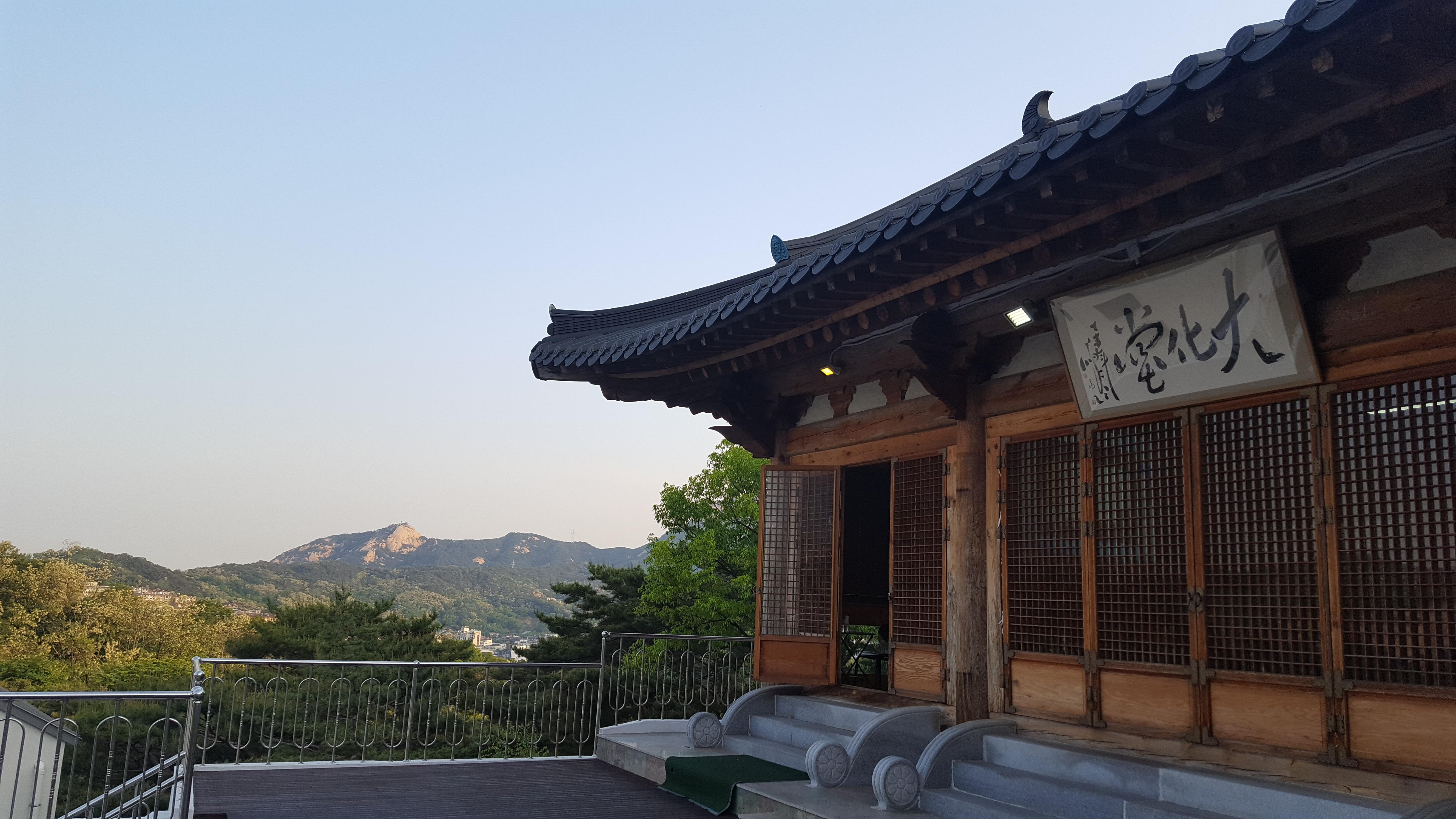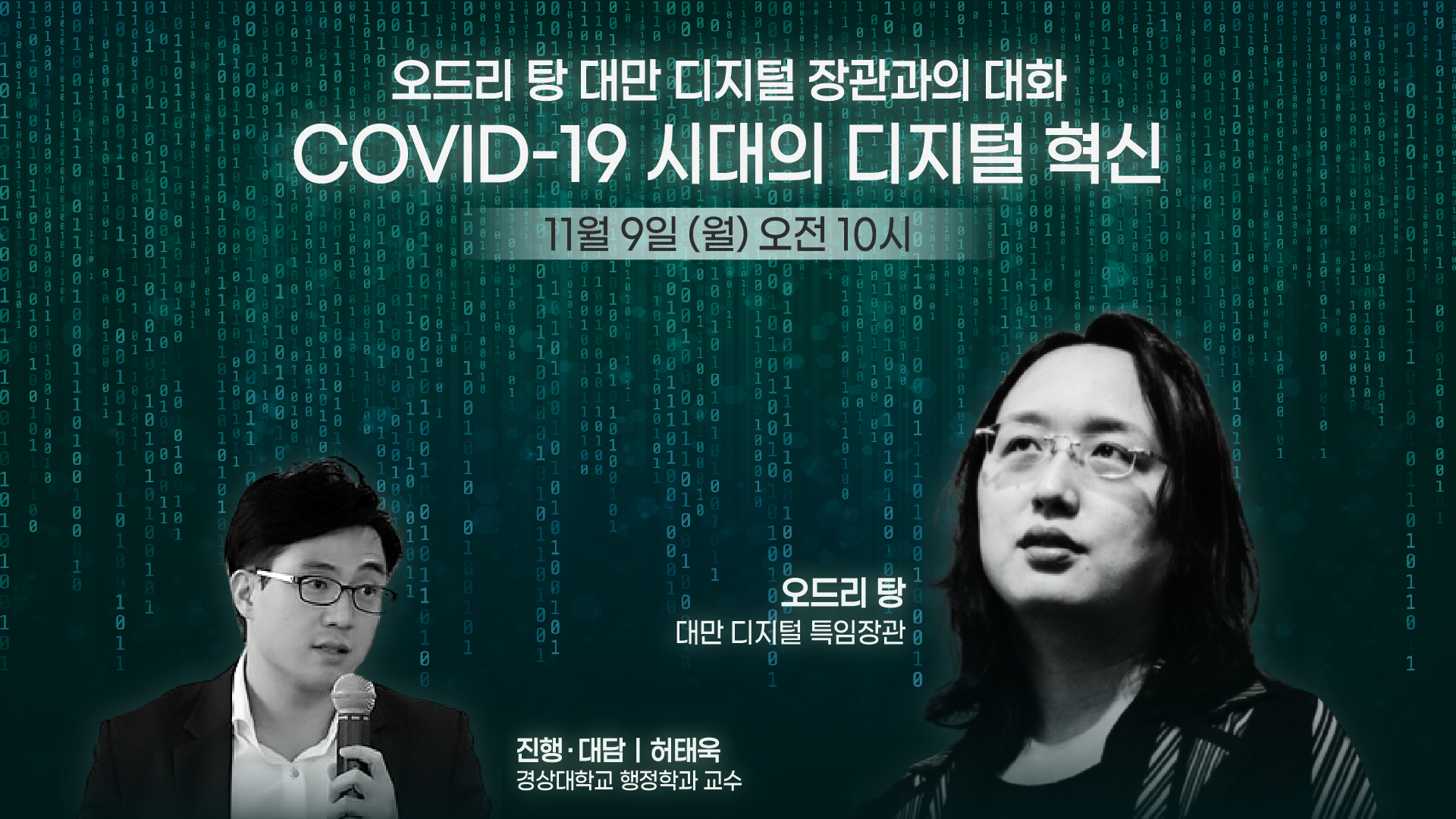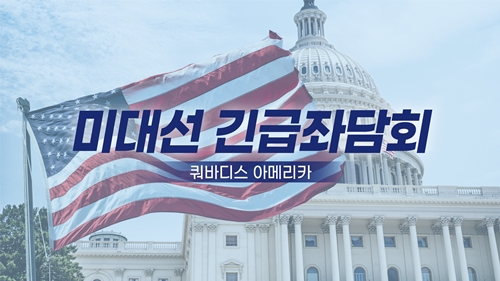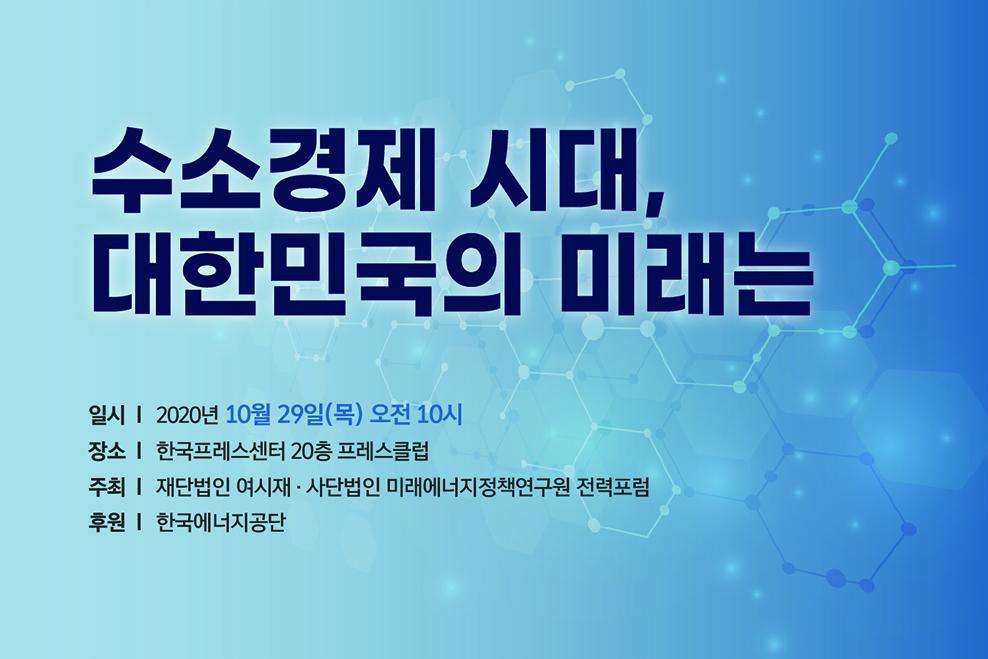Please join Yeosijae as we build a brighter future for Korea. Create your account to participate various events organized by Yeosijae.
- Insights
- |
- Next-Generation Values
Bridging the Divide: Facilitating Social Integration Through Tolerance
- Distrust and a lack of tolerance for diversity in society have divided us more than ever
- We have to build social capital to pave the way for future policy initiatives
- We need to facilitate communication between stakeholders instead of imposing top-down policies on them
“The beauty of the universe consists not only of unity in variety but also variety in unity.”
– Umberto Eco, “The Name of the Rose”
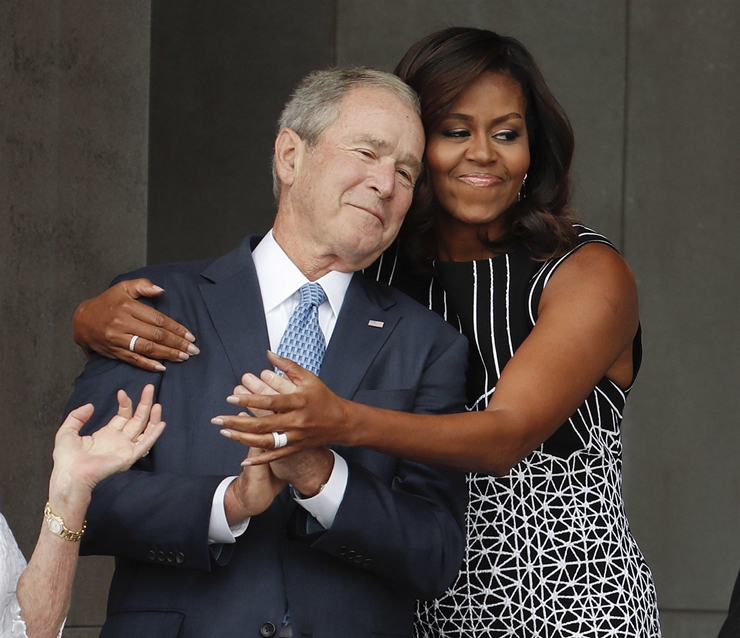
National Museum of African American History and Culture in Washington DC in September 2016 (Source: AP)
In a recent interview, former President George W. Bush expressed his shock over people’s reactions to his public interactions with former first lady Michelle Obama. Reflecting on their enduring friendship, he voiced his concerns about polarization in America, saying “it’s a problem that Americans are so polarized in their thinking that they can’t imagine a George W. Bush and a Michelle Obama being friends.”
Despite its reputation as the Great Melting Pot, the United States is a deeply divided nation today. Cracks and rifts have formed in American society, which used to champion tolerance of diversity and social integration. The long-festering divisions plaguing America were put on full display earlier this year when supporters of former President Donald Trump stormed the US Capitol.
The Age of Anger:
Less Tolerant & Less Forgiving Societies
Many factors brought the US to where it is today. However, the roots of the problem lie in the changing world order, the arrival of the Fourth Industrial Revolution, and the economic changes that have stemmed from this. Potential flashpoints that could spark conflict in society, such as race, religion, and beliefs, have always existed in the US. However, America’s tolerance for diversity has been slowly chipped away by the uncertainty created by fast-paced changes and anger among the underprivileged and underserved. This paved the way for the conflicts and divisions that we see in the US today. Societies around the world face the same problems. ‘Anger’ is a defining feature of the modern world. White working-class Americans who share a feeling of being marginalized are now the ‘Angry Whites,’ and ‘hungry’ South Koreans are now the ‘angry’ South Koreans.
People Are More Divided Today Than a Decade Ago
South Koreans are largely divided along political and economic lines
A survey conducted in 27 countries by Ipsos Mori in 2018 on behalf of the BBC highlights the severity of this issue. [Figure 1 & 2] Globally, 76% of the individuals surveyed responded that their country is divided, and 60% said their country is more divided now than it was a decade ago. The numbers were higher for Americans, at about 84% and 67%, respectively. Divisions in South Korea were also widening, with 77% and 55% of South Koreans agreeing that their country is divided and that the situation has gotten worse over the past ten years.
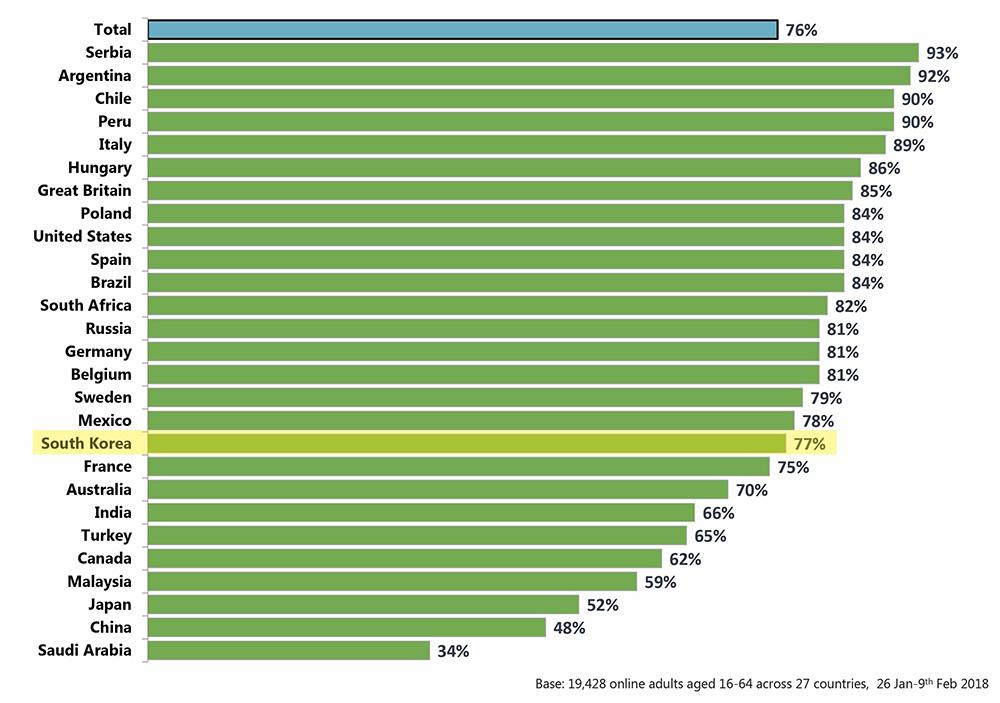

(Source: Ipsos MORI)
Differences in political views (66%), rich and poor (44%), old and young (25%), and men and women (24%) were seen as the biggest causes of tension among South Koreans, while differences between ethnicities (6%) or immigrants and native-born people (9%) were relatively low compared to other countries. Notably, South Koreans were more concerned about gender differences than any other country and ranked second (behind Japan) in terms of concern about generational differences. Concerns about political tensions were also high compared to Sweden, France, Belgium, and other European states that were in the 20-30% range. [Figure 3]
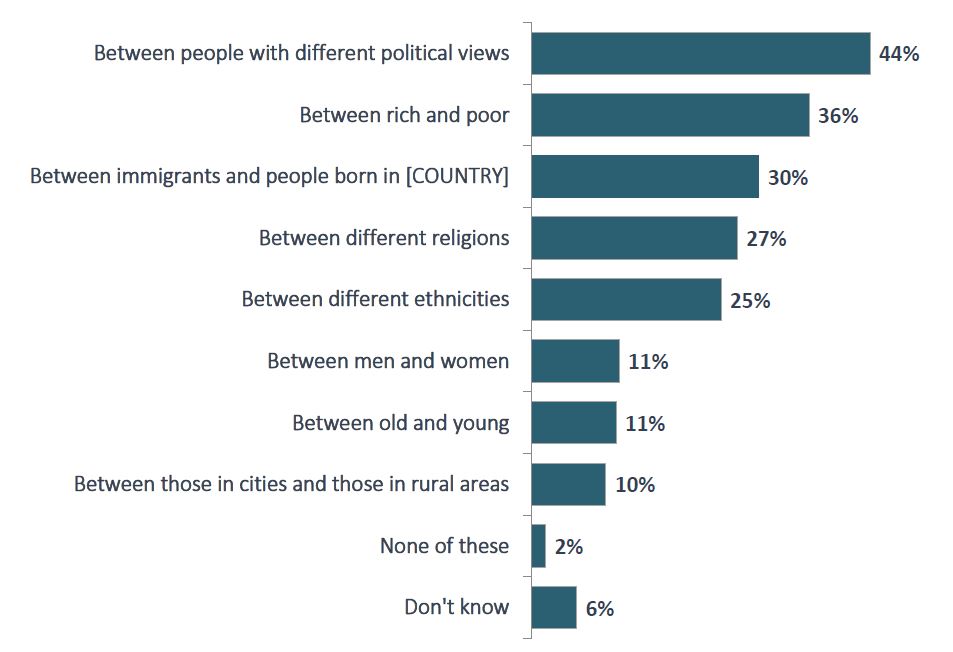
South Koreans are divided along ideological lines
The country also faces an increased risk of generational conflicts
due to population aging
The South Korean government has endeavored to resolve conflicts and increase social integration. The Korea Tripartite Commission (KTC, a body that brought together representatives from government, business, and labor to resolve labor disputes), the Economic, Social and Labor Council (ESLC), and the Presidential Committee for National Cohesion were all part of efforts to promote social integration in South Korea. However, it is difficult to say whether they have had much of an impact on Korean society.
According to the Korea Institute of Public Administration’s Korea Social Integration Survey, which measures social integration levels on an annual basis, South Koreans are “highly aware” of social conflicts. [Figure 4] In particular, tensions arising from ideological differences between political parties have garnered the most attention in South Korea, scoring 3.3 points out of 4 since 2017. Other notable conflicts have been class struggles (3.0) and labor disputes (2.9).
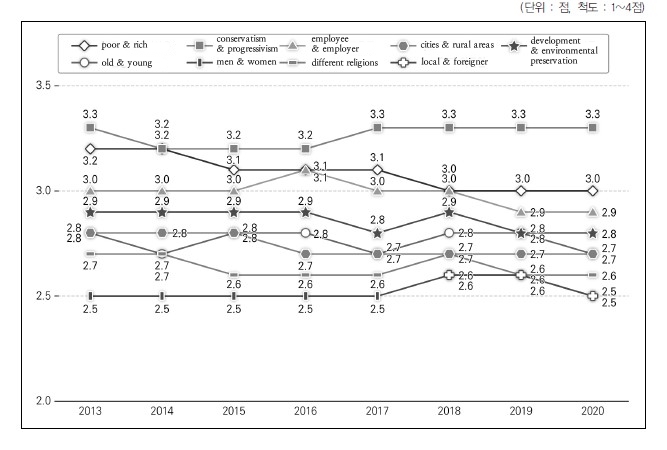
(Source: Korea Institute of Public Administration, ‘2020 Korea Social Integration Survey’)
As studies show, South Koreans are largely divided along ideological and economic lines. Although it is said that we have moved beyond the era of ideologies, South Koreans are becoming more polarized along political lines as political parties seek to divide people instead of bringing them closer. Generational tensions and gender-based conflicts are on the rise as well. Moreover, rapidly accelerating population aging risks exacerbating the growing generational gap.
Hate Speech on the Rise with COVID-19;
Government Needs to Take Steps to Bridge Ideological Differences and Mitigate Conflicts
The novel coronavirus pandemic that broke out in late 2019 has led to a rise in fear and anxiety, created chaos and disrupted normal economic activity and daily life across the world, and consequently exacerbated conflicts and social divisions. A study that examined news articles on social conflicts published between January and June 2020 found that keywords like “the economy,” “president,” and “country” appeared most frequently among other “signals” foretelling future social conflicts. This study also noted an increase in the use of hate speech since the beginning of the COVID-19 pandemic. (Chae, 2019) This means we will face serious social problems in the future unless we are able to reconcile conflicting interests between economic stakeholders and communicate economic policies more effectively. Moreover, the mix of political factors in conflicts highlights the government’s role in bridging ideological differences and mitigating conflicts.
The results of the 2021 South Korean by-elections, held on April 7, exposed the widening divide between generations and genders. Enraged by policy scandals (such as the Cho Kuk scandal and land speculation scandal involving the Korea Land and Housing Corporation), young voters in their twenties, who were already inclined to reject traditional political elites, voted based on emotions rather than ideology. Male voters in their twenties also chose to express their frustrations with the current administration, accusing it of discriminating against men and stoking conflict between genders. (Chang & Jun, 2021)
Social Paradigm Shifts Have Created More Conflicts,
Increasing the Importance of Tolerance
Conflicts are expected to increase in the future as the Fourth Industrial Revolution takes hold and brings about rapid changes in industries and economies. Applying band-aid solutions to this growing problem will only deepen the divides in our society and create more conflicts. Accordingly, it is critical that we promote social integration to facilitate the implementation of future-oriented policies.
What should be done to surmount this crisis and achieve social integration? To mitigate the risks associated with the Fourth Industrial Revolution (4IR), we need to increase our capacity to deal with social conflicts while coming up with institutional support and other comprehensive solutions. We have to prepare to respond to the paradigm shifts and future uncertainties that the 4IR will bring. Accordingly, this text will focus on tolerance as a solution to the factors that drive the growing divide in our society.
South Koreans Have a Small Inner Circle of Trust
And One of the Lowest Levels of Tolerance in the World
South Korea had one of the lowest levels of tolerance in the Ipsos survey. [Figure 5] Only 20% of South Koreans believed that they were “very or fairly tolerant” of people with different backgrounds, placing South Korea near the bottom of the 27 countries surveyed.
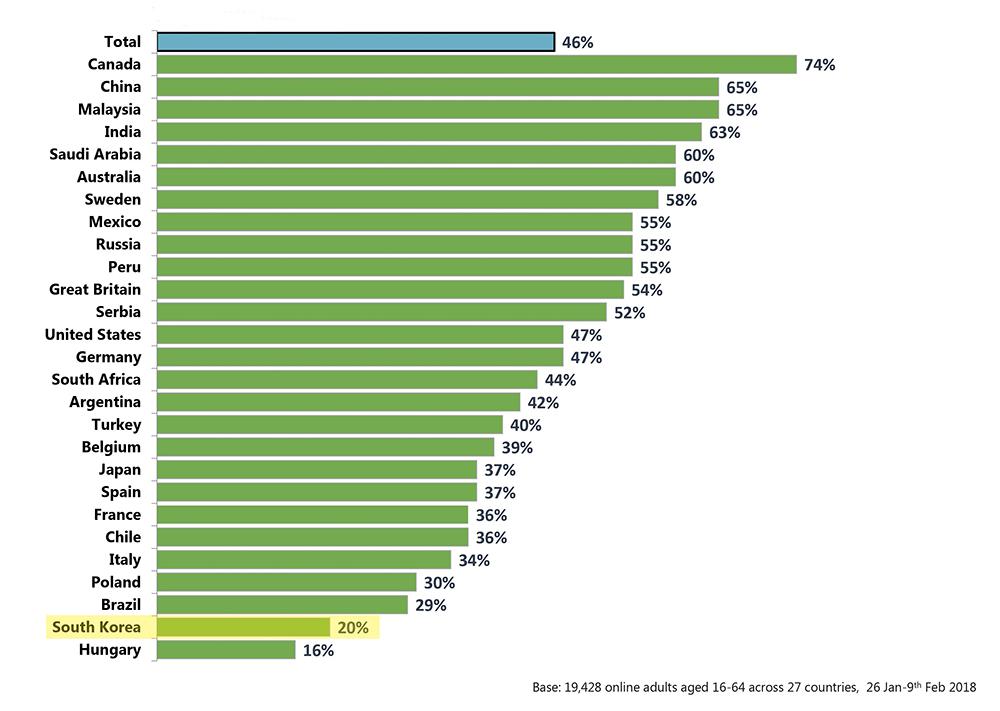
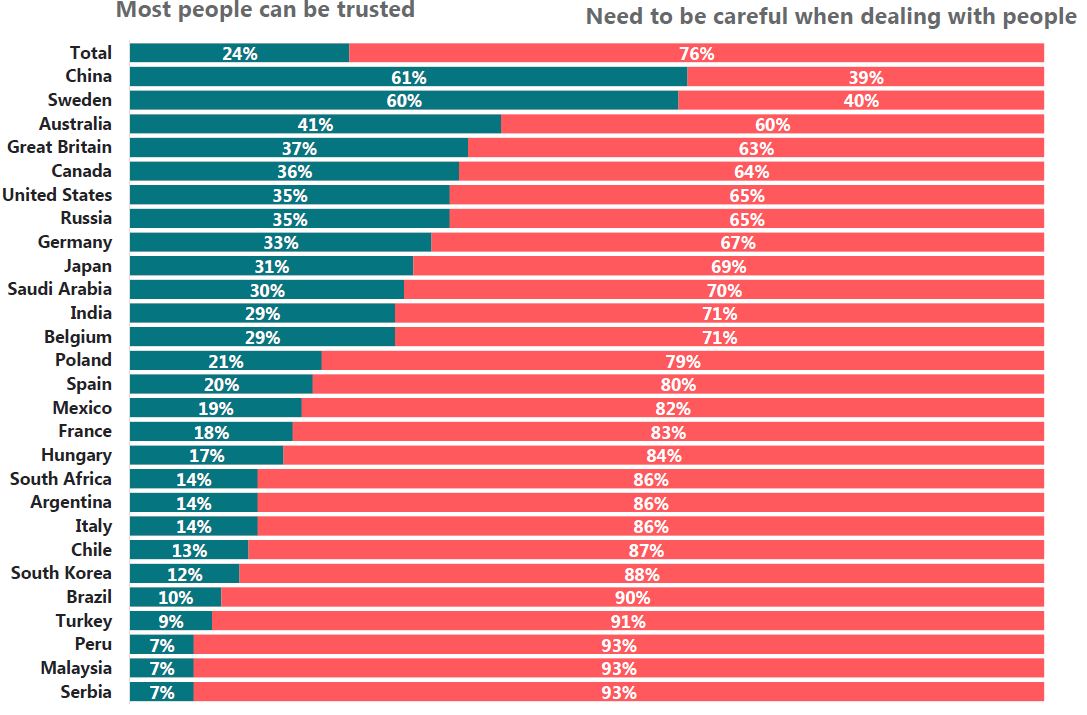
South Koreans were also the least trusting of others. [Figure 6] Only 12% of respondents said “most people can be trusted,” while 88% replied that they “need to be careful when dealing with people.”
The 2020 KIPA survey also found that South Koreans had little confidence in strangers (1.9 points out of 4) or foreigners (0.3), though they reported a high level of trust in family (3.6). This means South Koreans generally find it difficult to trust people who are not family or close friends. In particular, the lack of trust in foreigners shows the lack of tolerance in South Korea.
Likewise, public confidence in government and the National Assembly was low, despite the view that both should play a pivotal role in resolving social conflicts (32.2% and 28.2%, respectively). Trust in the central government, standing at around 2.4 points out of 4, was lower than the figures for medical, financial, and educational institutions, and the National Assembly continued its streak as the least trusted institution for the third year in a row at 1.9 points.
Confidence in public institutions and other people
Help reduce conflicts in society
Social capital is pivotal in building trust, resolving conflicts, and achieving social integration. Research has revealed that trust in public institutions, neighbors, and strangers can reduce ideological conflicts. (Bae & Ryu, 2020) Consequently, efforts to increase South Koreans’ level of trust should be paramount. The value of tolerance, which respects and embraces diversity, has the potential to serve as the foundation for trust, reduce the social costs of conflict and division, and promote creativity and innovation.
South Korea has a low tolerance for diversity;
Technologically advanced, but behind on tolerance
Richard Florida, author of The New Urban Crisis: How Our Cities Are Increasing Inequality, Deepening Segregation, and Failing the Middle Class and What We Can Do About It and professor at the University of Toronto, presented the ‘3Ts’ approach to economic development—that tolerance attracts talent, which in turn, creates technology and innovation. The Global Creativity Index by the Martin Prosperity Institute used this concept to evaluate countries and found that South Korea ranked as one of the lowest in terms of tolerance. [Figure 7]
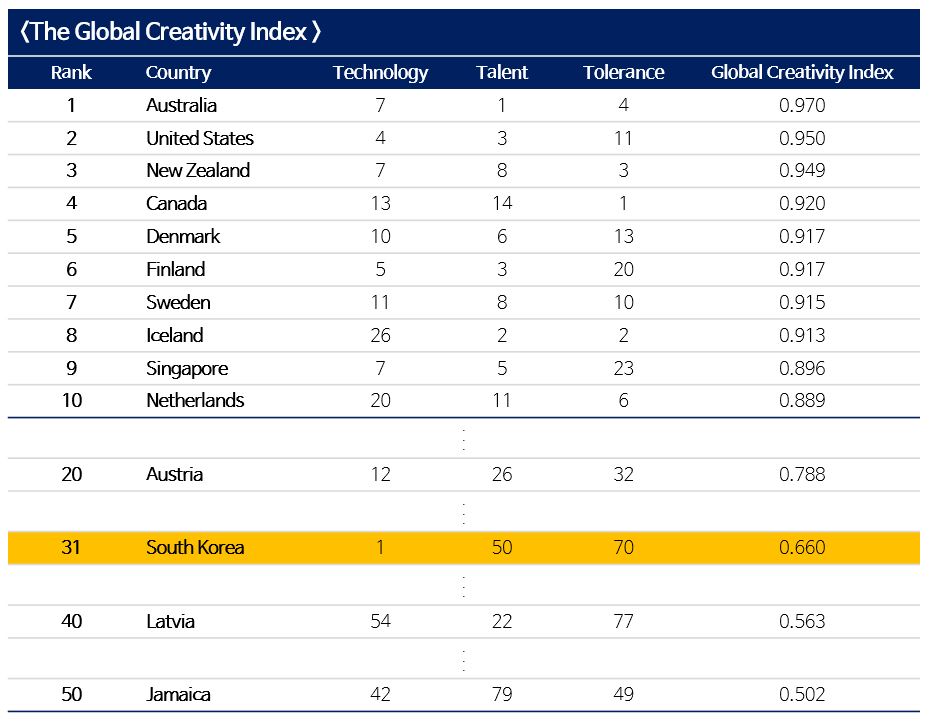
If we look at each category, South Korea took first place in technology, but came in at 50th for talent and 70th for tolerance. Overall, South Korea ranked 31st in the world. On the other hand, top-ranking countries such as Canada, Ireland, New Zealand, Denmark, and Sweden received high marks for tolerance. Singapore, placing 23rd on tolerance, was the only Asian country to crack the top ten in the overall rankings.
Tolerance increases diversity,
And diversity drives innovation
As stated earlier, the 3Ts concept comes from the idea that tolerance is key in attracting talent and facilitating technological innovation. Tolerance drives innovation by increasing diversity and reducing conflicts in society. Many studies attest to the benefits of diversity. Scott E. Page, professor at the University of Michigan, proved through experiments that cognitively diverse teams perform better than more homogeneous ones. (Page, 2007) Summarizing his findings as “diversity trumps ability,” he emphasized that the key to innovation is having diverse perspectives and a range of tools for problem-solving. Accordingly, South Korea should focus on the value of tolerance, given that it reduces conflict and creates innovation by fostering diversity and creativity.
Effective communication is key to resolving conflicts
Avoiding the top-down trap
It is more effective for the government to address conflicts of interests or values by facilitating communication between interest groups and stakeholders rather than implementing top-down measures. (Bae & Ryu, 2020) Authoritarian-era methods that use power or dominance to suppress dissent are no longer an option, and top-down approaches are also ineffective in today’s world. Consequently, improving communication between stakeholders is the most effective way to build a consensus, and the value of tolerance must play an important role when we take this approach.
Instead of forcing solutions, we must understand and engage stakeholders by taking into account their interests and priorities. Resolving conflicts through stakeholder engagement requires strong tolerance for disagreement. We have to understand and respect other people’s interests to move discussions forward and reach an agreement. In other words, we need tolerance to resolve conflicts in society.
Facilitating Communication between Stakeholders
Through the ‘Hackathon’ Method
South Korea has taken a ‘hackathon’ approach in recent years to resolve conflicts and facilitate compromises. A hackathon, which combines the words hacking and marathon, is an event where developers and designers team up to develop ideas and solve problems or develop new online services or business models. South Korea has used this approach to create solutions or look for new strategies to deal with challenging issues.
A case in point is the Regulatory and Institutional Reform Hackathon hosted by the Presidential Committee on the Fourth Industrial Revolution. The committee brought together experts and government officials for the hackathon to discuss issues until they had worked through each area of conflict. The government now plans to expand this program to other government organizations.
According to one of the organizers, a successful hackathon requires extensive preparation and a continuous exchange of ideas. Participants prepare before the event to understand where others stand on key issues, then exchange ideas during the formal debate until they find a middle ground. In other words, the keys to reaching agreement are preparation to increase our understanding of stakeholders and a prolonged discussion that encourages the exchange of ideas.
Rebuilding Trust and Resolving Conflicts
Through the Spirit of Tolerance
Government policies will struggle to gain traction if we are unable to bridge our differences and build a social consensus. Policies must address the needs of the public in order to receive support, build momentum, and drive real change.
While reasonable policies, institutional mechanisms to resolve conflicts and improvements to social structures are important, at present we must first endeavor to promote the kind of social capital that embraces diversity and drives mutual respect.
As the 4IR unfolds, the range of factors causing social conflicts continues to expand. Unless we are able to foster a culture of tolerance in preparation for this, it will be hard to expect Korea to grasp the new opportunities presented by the 4IR and make great progress.
[References]
1) Kim, Yong-Hoi. (2020.) “Social Conflict Issues and Searching for Future Signal since COVID-19: Focusing on the Keywords in the News Articles.” Korean Academy of Social Welfare, 565-589.
2) Chae, Jong-Hun. (2019). Emergence of New Industries and the Importance of Conflict Resolution. KIPA Issue Paper 77. Korea Institute of Public Administration.
3) Bae, Kwang-Bin, and In-Kwon Ryu. (2020). “The Effects of Social Capital and Communication on Social Conflict Resolution.” The Research Institute of Social Science, Dongguk University, 27(2). 174-193.
4) Chang, Min-Kwon, and Min-Kyung Jun. “Poorer Than Their Parents, Less Likely to Find Jobs and Own a House... Post-Ideological Generation Shakes Up Society” The Financial News, 2021.04.18.
5) Korea Institute of Public Administration (2021). “2020 Korea Social Integration Survey.” Korea Institute of Public Administration.
6) Florida R, Mellander C., and King K. (2015). The Global Creativity Index 2015, Martin Prosperity Institute.
7) Ipsos MORI (2018). BBC Global Survey: A world divided?, Ipsos MORI Social Research Institute.
8) Page S. (2007). Difference: How the power of diversity creates better groups, schools, and societies. Princeton University Press, NJ.
< Copyright holder © TAEJAE FUTURE CONSENSUS INSTITUTE, Not available for redistribution >

